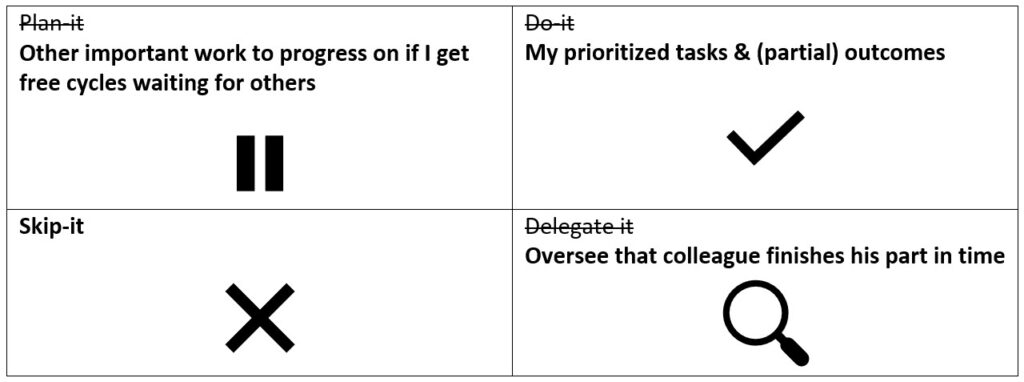In the modern workplace few outcomes can be achieved by one person, most of the work is co-delivered by a team (or more loosely a “set of persons”). This set of persons are interdependent of each other to create the outcome. And then there are the priorities, we want certain projects / outcomes to be delivered before others.
When looking at work planning for one person, a popular method for ensuring the priorities happen is the Eisenhower-matrix (also referred to as the urgent-important matrix). With its 4 quadrants “do-it”, “plan-it”, “delegate-it”, “skip-it”, the tasks on the table can be categorized according to the priorities and deadlines at hand.
When working as a team with interdependent tasks, one of the challenges is to avoid stop-and-go in the work; meaning you cannot progress because you need to wait for one of your team mates to deliver something first. (And that Team-mate may not have that task as his priority right now). To address this, the concept of mutually agreed “sprints” may be of help, where the team agrees what outcome they will prioritize to deliver together in a certain week.
For interdependent work situations, a slightly adapted Urgent-Important matrix could look like this:

What methods do you use for work planning in interdependent setups?